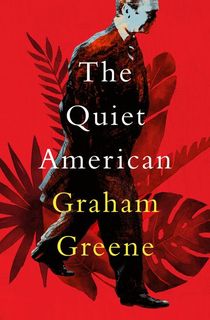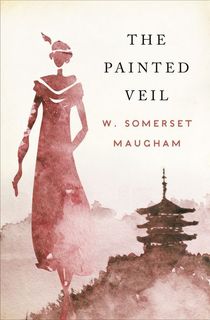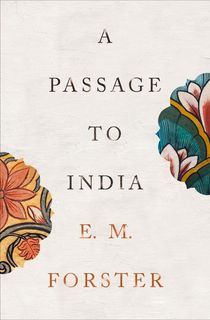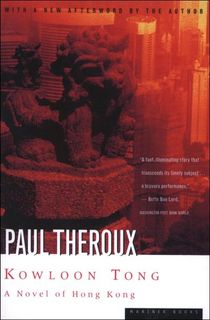Colonialism was not without its horrors, and in Asia in particular, the effects of the British, Dutch and French rules are still being felt to this day. But times long gone have a strange way of taking on new perspectives: with the recent military coup in Myanmar, China’s clamping of Hong Kong civil liberties, not to mention the popularity of British empire TV show The Crown, the history of colonialism in Asia is once again on our collective minds.
Over the last century, numerous celebrated western novelists escaped to the East, deftly interweaving the region’s evolving history alongside their own unique narratives. Here are our picks for the nine best historical fiction novels set against the backdrop of colonial Asia.

The Quiet American
Often considered the quintessential expat novel of colonial Asia, The Quiet American follows Fowler, an aging British journalist caught up in a love triangle between his local girlfriend Phuong, and Pyle, an American doctor whose intentions are darker than they initially appear.
Graham Greene penned the novel while living in Saigon, and through his own thinly-veiled protagonist, served up an honest depiction of not only the waning days of French colonialism, but the unwanted involvement of the United States in the country. Incredibly prescient, the book offered a timely warning in literary form, one that soon proved true with the outbreak of the "American War."

Burmese Days
Set in a Burmese outpost on the edge of the British Raj, Flory is a timber merchant balancing allegiance to the Indian middle-class he relies on, and the bigoted colonialists he drinks with at the local whites-only member’s club. When an English lady arrives fresh-off-the-boat, his unrequited love leads to a powder-keg that sets off the whole community.
Both farce and satire, this was Orwell’s debut after serving years as a policeman in Burma, and its wry humor and at times absurdist nature, take the edge off what’s essentially a damning indictment of corruption in colonial times. With Myanmar currently facing its own protests, the uprising ending feels like a portent from nearly a century ago.

The Long Day Wanes: A Malayan Trilogy
Across three short, humorous novels, we follow Victor Crabbe, a philandering British school teacher as he rises through the ranks of the country’s bureaucratic education system. Across the changing Malay peninsula, he’ll deal with oppressive cultures, searing climates, drunken colonialists, as well as the racial and cultural stereotypes prevalent during the era.
Like Orwell, Burgess’ years teaching in the now-Malaysia inspired his debut into the writing world, although the author is far more interested in entertaining than educating, highlighting the many officious irrationalities of Britain’s exit from this part of the world.

The Painted Veil
Set during Hong Kong’s 1920s cholera epidemic, British bacteriologist Walter catches his wife Kitty in an adulterous affair, dragging her to a village on the edge of the colonial city where the outbreak is at its worst. But it’s here, where death is literally at the door, that the pair find the capacity to change and grow.
Maugham was an avid visitor to Hong Kong and Asia, regularly frequenting colonial outposts and borrowing expat anecdotes for his books.
Painted Veil is the culmination of his travels, a brief but beautiful book that captures the passions and perils of contrasting cultures.

A Passage to India
Adela Quested and her mother-in-law Mrs. Moore are tired of Anglo society, desperate to see the real India, despite the judgements of their fellow British ruling class. Arranging a trip with the educated Dr. Aziz into the nearby caves, a scandal emerges that cause rifts between the ethnicities, questioning where exactly the line lies between ruler and subject.
A Passage to India is not an easy read – it’s drawn-out, dated, and despite being anti-colonialist, peppered with prejudices and stereotypes. But for the grandeur of the Raj, the novel is unmatched, and for its prescient insights into Indian resentment, decades before India’s partition, offers a perceptive path toward eventual independence.

The Singapore Grip
Business is booming for British mogul Walter Blackett—with World War II entering the Asian theatre, the Allies have no choice but to buy into his rubber monopoly. But as the locals begin to tire of colonialism and the Japanese axis advance closer by the month, it seems like Singapore won’t ever be the same.
The third part of the author’s Empire trilogy, The Singapore Grip holds the distinction of being a rare novel to chart the country’s murky colonial history, a time when corruption and vices ran rampant. Farrell handles it well though, weaving Tolstoy-like the global histories and personal affairs of the once-British island-nation.

The Black Lake
Two boys living in the Dutch East Indies during the 1930s see nothing but life’s innocence, free from the awareness that one is white and the other local. But as they grow into men, society forces their paths to diverge, one into the life of an elite, the other as a freedom fighter battling those standing on the side of his former friend.
"East Indies" literature is sub-genre unto itself in the Netherlands, but the books rarely see translations. As short as it is humble, Black Lake offers a heart-wrenching tale of racism and oppression, set against the backdrop of colonies seldom mentioned.

Noble House
For Ian Dunross, the British industrialist leading Hong Kong’s largest conglomerate during the perilous 1960s, balancing alliances and adversaries isn’t easy. He’ll have to fend off rival organizations and nouveau rich Americans, not to mention Chinese communists from across the bay, to hold onto his esteemed "tai pan" title.
Clavell dedicated his life to "exotic East" novels, but it’s Noble House, at over 1300 pages, that presents the colonial region in its most epic form. Based loosely on the Swire and Jardine families that still largely control corporate Hong Kong, the epic doorstopper is heavy on the intricacies of cultural politics, offering an exhaustive look at peak British Hong Kong.

Kowloon Tong
Set in the dusk-like days before Hong Kong’s 1997 handover, Bunt Mallard and his mother Betty are little concerned with the imminent consequences, even as a mysterious Chinese investor enters, looking to buy up their family venture. When his insistence turns to extortion though, they soon understand the significance of this last colonial outpost.
A fitting end to this list, with the last major British colony signaling the end of an empire. It’s true that Theroux is often a better travel writer than a novelist, and this is no exception, but for its depiction of a dying city that is now well and truly in China’s hand, it’s worth the read.





